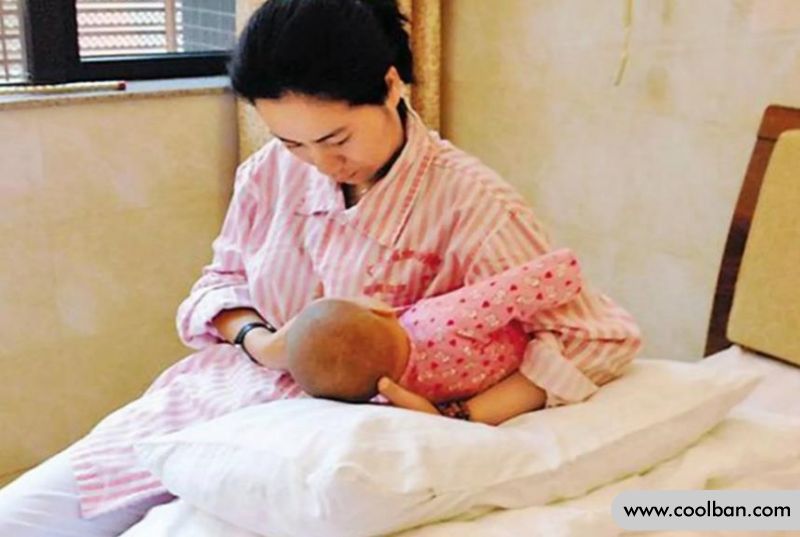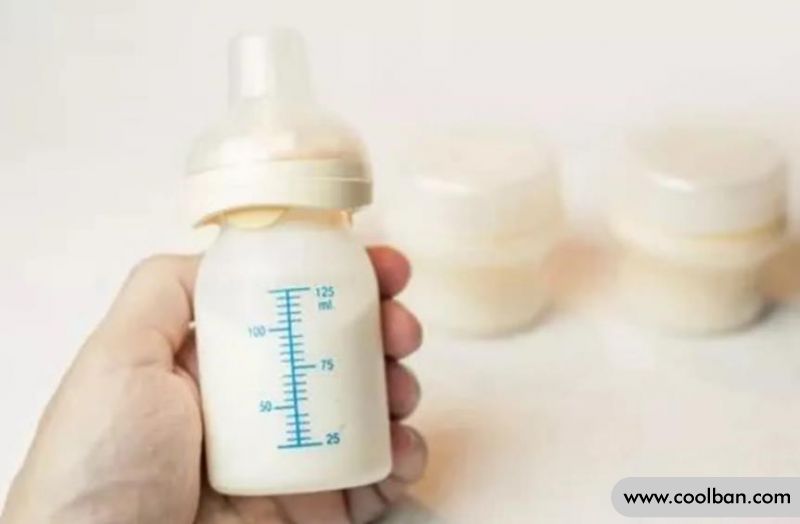Causes and symptoms of breast milk diarrhea in babies
Breast milk has long been considered the best natural nutrition. However, you may never think that breastfeeding can also cause diarrhea in your baby. This shocked new mothers, and this is the legendary breast milk diarrhea. Breast milk diarrhea in infants is uncommon. As a result, many new mothers are unaware of the causes, symptoms, treatment, and prevention of breast milk diarrhea in their babies. In order to prepare for the rainy day, new mothers and expectant mothers will solve the baby's breast milk diarrhea together today.

What is infant breast milk diarrhea
Baby has diarrhea after breastfeeding, what's the matter? Mothers should pay attention, this is not because the baby does not like to drink breast milk, but may suffer from breast milk diarrhea. What? Is there still a phenomenon of "baby breast milk diarrhea" in this world? What exactly is going on?
Breast milk diarrhea is caused by breastfeeding, which is rare in real life. When diarrhea occurs, the possibility of disease should be ruled out first.
Breast milk diarrhea has distinct characteristics. This type of diarrhea usually has 3-7 bowel movements per day. The stool is foamy, watery, and has a special sour taste. The stools are thin and green, with foam and milk flaps, and sometimes even streaks of clear mucus. During diarrhea, the baby has no fever, no obvious pain and crying, and the baby is active and has a good appetite. If diarrhea persists for a long time, it may lead to serious consequences such as growth stagnation and malnutrition, which requires prompt treatment.

Causes of infant breastfeeding diarrhea
Some mothers are surprised to find that their babies experience violent reactions such as diarrhea, rejection, and irritability after drinking their own breast milk. What exactly is infant breast milk diarrhea? What Causes Breastmilk Diarrhea in Babies? These are the questions new mothers desperately need to answer.
Breastfeeding causes diarrhea, which may be due to the high content of prostaglandins in breast milk, which promotes smooth muscle movement in the small intestine and increases the secretion of water and electrolytes, resulting in loose stools. It can also be lactose intolerance in children, a lack of lactase in the body. Lactose intolerance can be divided into primary and secondary categories. The lead acetate method can be used to determine the lactose content in the feces of children for initial screening, and then a lactose-free diet can be used to quickly confirm the efficacy. When there is so-called physiological lactation diarrhea, do not switch to cow's milk for stool formation. The baby's body will gradually adapt to the prostaglandins in breast milk, the lactase will gradually mature, the enzyme activity will increase, so as to decompose, digest and absorb lactose, which will gradually improve with the increase of complementary food. In addition, be careful not to cover the nipple. . After each breast is basically emptied, if you continue to suck, the fat content in the milk will increase, which can easily lead to fat indigestion. Every 10 minutes or so, the full breasts can basically be emptied.

What are the symptoms of infant breast milk diarrhea
Mothers want to know whether their babies are allergic to breastfeeding, which requires everyone to have a certain understanding of the symptoms of breastfeeding diarrhea in their babies, so that they can make scientific judgments and make corresponding solutions and measures in a timely manner.
To know whether the baby has breast milk diarrhea, the mother must first understand the normal bowel movement of the baby.
Newborns usually have more bowel movements, up to 10 times a day, and when they are older, it may be several times a day to once a day. The mother understands the baby's normal bowel habits and can determine whether the baby has diarrhea at the first time. In addition to observing the shape of the baby's stool, the mother should also pay attention to whether the baby's stool has other odors.
If the baby has occasional diarrhea, the mother does not need to worry too much, because it is related to the baby eating complementary food and so on. However, if your baby's defecation pattern changes, for example, the baby has more stools than usual, the stool texture becomes thinner, or even watery stools appear, which means that the mother should pay attention to whether the baby has diarrhea.
Infants who are exclusively breastfed have stools that are usually yellow, soft, and slightly watery before complementary foods are introduced, and generally have no unpleasant taste. If your baby's stool tastes sour, your baby may have indigestion. Breastfed babies usually have more than one bowel movement a day, and their stools are yellow or tan, sticky, and smell a little bad.
When your baby starts eating solid foods, his stools will become harder than before. The texture of the stool can also change based on what your baby eats, and it can also become unpleasant. But if your baby's already hard stools are starting to become thin and frequent, it's likely a symptom of your baby's diarrhea.
Most babies have mild diarrhea. As long as the baby is not dehydrated, in a good state of mind, and urinates a lot every day, it is not a big problem. These symptoms may disappear within a few days if the mother gives her baby water in time.
If the baby has severe diarrhea, defeces more than ten times a day, the stool is thin, the baby is crying again, the spirit is not good, the urine is little or no urine and other dehydration symptoms, then the parents should immediately take the baby to the hospital for treatment.
